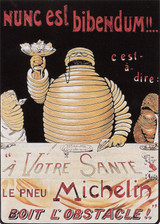Simmons Prepared Foods, Inc. Recalls Chicken Products Due To Possible E. Coli O121 Contamination
WASHINGTON, July 12, 2016 – Simmons Prepared Foods, Inc., a Van Buren, Ark. establishment, is recalling approximately 5,850 pounds of frozen, heat treated, not ready-to-eat (NRTE) chicken products that may be contaminated with E. coli O121, the U.S. Department of Agriculture’s Food Safety and Inspection Service (FSIS) announced today.
The frozen, heat treated, not ready-to-eat (NRTE) chicken tenderloin items were produced on Jan. 25, 2016. The following products are subject to recall: [View Labels (PDF Only)]
- 30-lb. net-weight case containing six, 5-lb. bags in clear film of “Simmons UNCOOKED CHICKEN TENDERLOIN FRITTERS,” with a case code 31473, packaging date code of 6025, and a Use-By date of 01/25/17.
- 30-lb. net-weight case containing six, 5-lb. bags in clear film of “Simmons UNCOOKED CHICKEN BREAST TENDERLOIN FRITTERS,” with a case code 62331 and a packaging date of 6025.
The products subject to recall bear establishment number “P-5837” inside the USDA mark of inspection. These items were distributed to Arkansas for institutional use.
The problem was discovered on July 7, 2016, when Simmons Prepared Foods, Inc. received notice from a supplier that flour sold to the establishment was recalled by General Mills. The firm used the recalled flour to bread the chicken fritters affected by this recall action. There have been no confirmed reports of adverse reactions or illnesses due to consumption of these Simmons Prepared Foods, Inc. products.
Information on the General Mills’ recall can be found at: http://www.fda.gov/Safety/Recalls/ucm509693.htm.
Many clinical laboratories do not test for non-O157 Shiga toxin-producing E. coli (STEC), such as STEC O121 because it is harder to identify than STEC O157. People can become ill from STECs 2–8 days (average of 3–4 days) after consuming the organism. Most people infected with STEC O121 develop diarrhea (often bloody), and vomiting. Some illnesses last longer and can be more severe. Infection is usually diagnosed by testing of a stool sample. Vigorous rehydration and other supportive care is the usual treatment; antibiotic treatment is generally not recommended.
Most people recover within a week, but, rarely, some develop a more severe infection. Hemolytic uremic syndrome (HUS) is uncommon with STEC O121 infection. HUS can occur in people of any age but is most common in children under 5 years old, older adults and persons with weakened immune systems. It is marked by easy bruising, pallor, and decreased urine output. Persons who experience these symptoms should seek emergency medical care immediately.
FSIS and the company are concerned that some product may be frozen and in consumers' freezers.
Consumers who have purchased these products are urged not to consume them. These products should be thrown away or returned to the place of purchase.
FSIS routinely conducts recall effectiveness checks to verify recalling firms notify theircustomers of the recall and that steps are taken to make certain that the product is no longer available to consumers. When available, the retail distribution list(s) will be posted on the FSIS website at www.fsis.usda.gov/recalls.
Media with questions regarding the recall can contact Donny Epp, Director of Communications, at (479) 215-2626 and Kimmie Provost, Executive Assistant and Corporate Affairs Coordinator, at (479) 215-2507. Consumers with questions regarding the recall can contact Vicky Goodman, Customer Service Manager, at (479) 215-2296.
Recent Posts
-
The Origin of the Michelin Guide
From a little red guide book to an iconic standard in international fine dining, have you ever w …Mar 10, 2024 -
Make Color-Coding Your Resolution
Color-coding is a simple way to have a big impact on your facility’s food safety, sanitation and co …Jan 16, 2024 -
Why EPDM Transfer Hoses are a Great Choice for your Brewery
EPDM stands for ethylene propylene diene monomer. It’s a synthetic rubber that has quickly gained t …Jun 14, 2023



